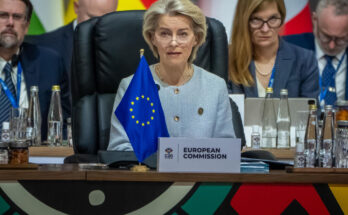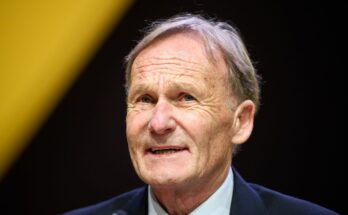The pension dispute continues to weigh on the coalition – the Greens put forward their own proposal
There is still no sign of resolving the dispute within the coalition over pensions. CSU boss Markus Söder called for a “quick solution” at the weekend because: “Public discord is of course detrimental.” The SPD insisted that the draft be approved by the cabinet, while young CDU/CSU MPs demanded changes. The Greens have announced that they will not endorse it in the Bundestag and have put forward their own comprehensive proposal.
Söder said on Saturday after a closed meeting of the CSU board in Munich that “everyone is asked to find a solution” under the coalition agreement. “Basta of the SPD” is not that easy either. Ultimately, it is important for the younger generation to have a perspective on pensions and that no compromises be made to their detriment, continued the Bavarian Prime Minister.
The background to this dispute is the demand, especially from young Union politicians, to change the current pension law. They objected to the fact that not only was the pension rate set at at least 48 percent until 2031, but this would also lead to a higher initial rate for pension development in subsequent years. However, the Union and SPD depend on votes from the CDU Youth Group to gain a majority in the Bundestag.
Union parliamentary group leader Jens Spahn (CDU) told the “Münchner Merkur” that there was “a lot of understanding and sympathy” for the arguments of the Young Group and the Young Union. At the same time, everyone has “the big picture in mind: this coalition has to be able to govern if we want to achieve anything for our country,” he continued.
SPD parliamentary group leader Matthias Miersch referred to the coalition agreement and SPD membership decision in the Bavarian media group’s newspaper. “We can’t come back from that.” Compromises are currently being discussed in coalition negotiations. “After a long struggle, we agreed to extend the limits until 2031 – and also the fact that they will not disappear after that, as if there had never been a compromise.” The “big points” negotiated in a coalition agreement must be handled carefully.
Criticism of the youth group also came from CDU Bundestag member Kai Whittaker. “It is not true that this draft is not included in the coalition agreement,” he told “Tagesspiegel” on Saturday. “What the Youth Group is really demanding is a new legal situation, but that is not in the coalition agreement. Therefore, I cannot understand their criticism.”
Without the votes of the Youth Group in Parliament, the government would not have a majority. At least he can’t count on votes from the Green Party: party leader Felix Banaszak ruled out his party’s endorsement. “Supervised government is over. They have to finish it now,” he told “Bild am Sonntag”. But he believes the pension package is “totally wrong,” he said. “We reject this pension package because overall it is not a sensible way to spend money and does not address the structural issues at all.”
Instead, the Greens presented their own paper: They want to guarantee a pension rate of 48 percent and at the same time ease the burden on the younger generation, as group leaders Katharina Dröge and Britta Haßelmann and group vice-president Andreas Audretsch wrote in it. Among other things, pension funds at the age of 63 will be reduced gradually starting in 2030. The Green Party also demands that new civil servants and members of parliament must also pay statutory pension insurance.
The Green Party leadership also sees companies as having an obligation to “change the culture of early retirement and partial retirement programs so as not to further reduce our skilled worker base.” There should be more health promotion and age-appropriate working conditions in the workplace; Permanent employment contracts no longer automatically end when the statutory retirement age is reached.
Rather than receiving the active pension planned by the federal government, employees of retirement age must be paid with employer contributions for pension insurance and unemployment insurance. Better child care is also needed so that women can work as much as they want.
AFP



